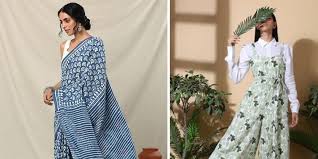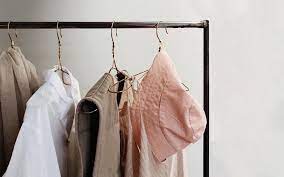Elevate your standard of wearing sustainable clothes

Don’t underestimate sustainable clothing to level up your standard. Imagine an item of sustainable clothing. The picture that came to your mind is that of a loose-fitting dress in cream, made out of handwoven fabrics with the finest touch of hand embroidery at the edges. A fair amount of slow fashion is restricted to the neutral or earthy color palette (white, or thing beige, indigo, black Salman pink, has loose, or boxy cuts, and follows a distinctly minimal aesthetic. Today you can find sustainable fashion in all styles. We produce sports shorts for a label using recycled polyester.
In fast fashion, the philosophy behind slow fashion is the opposite of fast fashion.
Every week you pick up a “trendy” item like animal print slacks and off-shoulder dresses, these sound like neutral-colored, simple basics become the clothing of choice among sustainability patrons - they are versatile, timeless, and will be treasured in your wardrobe. The all-time favorite trend is light-colored shirts tucked in high-waisted jeans or narrow pants to look slim and perfect.
While slow fashion celebrates every process and minute element involved in making an item. Fast fashion hangs onto introducing more pieces. But I find the whole idea of trendy clothing very subjective.
The classic look is a basic white shirt and a pair of denim very stylish and a mix-up of formal and casual looks that can suit anywhere.
Raw Materials

Another fine difference between fast and slow fashion is the use of responsibly produced, natural fabrics like cotton, silk, and wood. If a designer wants to support India’s traditional weaver communicates while still creating inclusive sizing of their collections.
One of the most harmful by-products of producing apparel is the chemical dyes that get released into the environment. The counter solution employed by multiple conscious clothing labels is to use vegetable dyes instead which are made of natural ingredients and are not harmful to the environment.
Another fascinating aspect is the role technology is going to play in creating new raw materials and building eco-friendly products process and this could completely transform the look of sustainable fashion. There are a lot of new-age fabrics being developed from food waste. In Tamil Nadu and Kerala, people are experimenting with indigenous plants like browsing hemp to make new fibers.











































